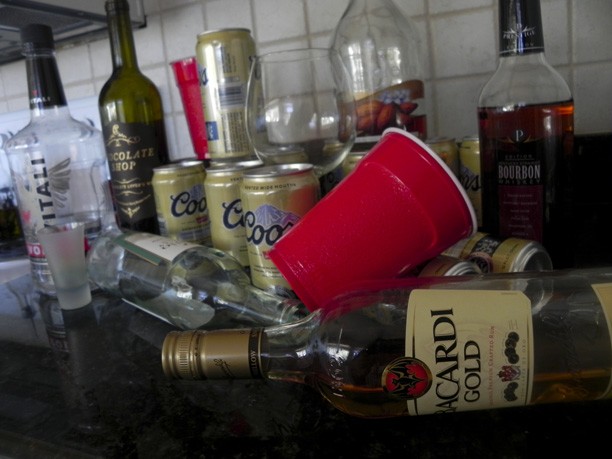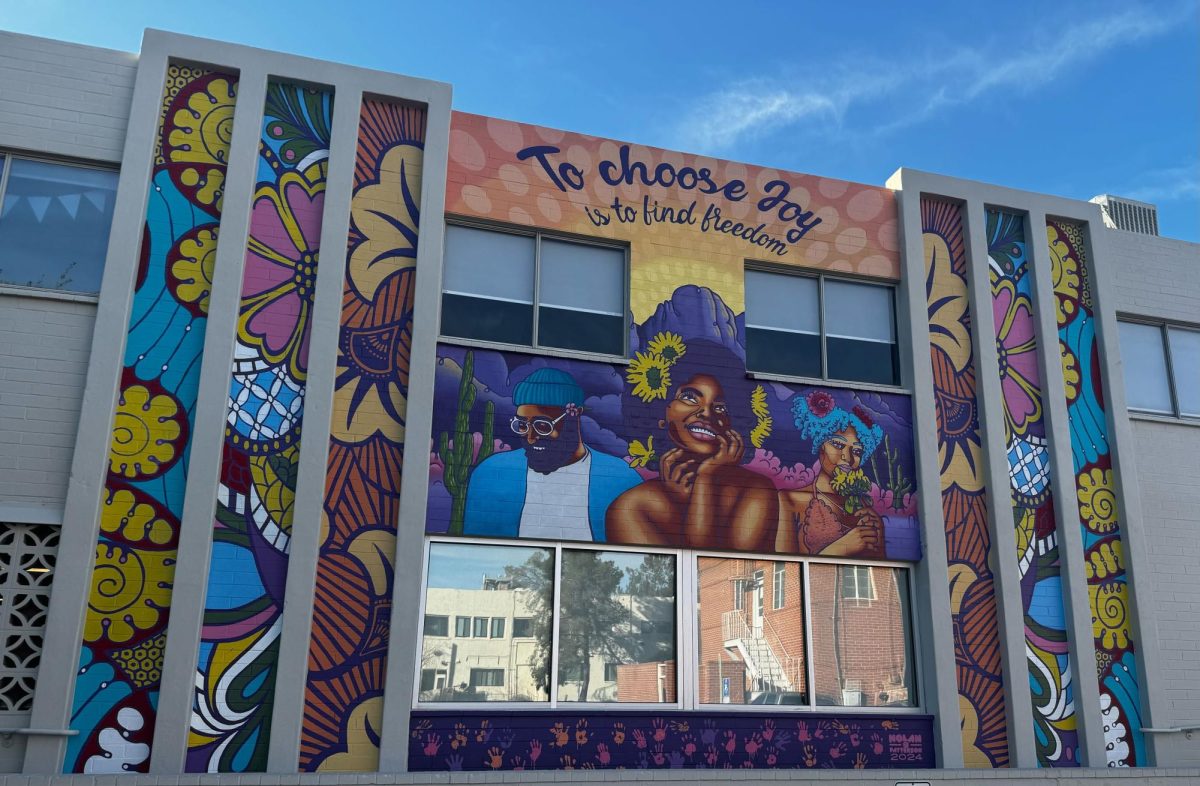After leaving a show at the Rialto Theatre, the only thing Adam had on his agenda was heading to a local taco shop for a late-night meal. That is, until an officer pulled him over.
It began when Adam made a right turn at a red light without coming to a complete stop.
“In all honesty, I was fine,” said Adam, who was a UA aeronautical and mechanical engineering senior at the time and requested his last name be withheld.
“I didn’t feel like I was drunk,” Adam said. “I drove perfectly fine; even the cop said I was perfectly fine.”
But before he knew it, Adam, who had had four beers in four hours, was cited by a Tucson Police Department officer for driving under the influence.
Adam was then asked to perform a field sobriety test and Breathalyzer test before the officer drew his blood to be tested in a lab.
“I was scared shitless,” Adam said.
But he said he remained cooperative and answered the officer’s questions truthfully, including those about where he had been that night and whether he had consumed alcohol. Although Adam unknowingly passed his Breathalyzer and sobriety tests, he was cited for a DUI and told to call someone for a ride home.
Two years later, after Adam had spent around $10,000 for an attorney, a blood-testing expert, alcohol classes, alcohol therapy and a suspended license, his DUI case was thrown out.
Adam was one of the lucky ones, legal experts say.
“Both the university police and the Tucson Police Department are actively looking for underage drinkers, especially UAPD,” said Susan Ferrell, a legal services adviser at ASUA Legal Services.
If a student chooses to engage in illegal activities, knowing how to interact with an officer can be crucial.
Driving Under the Influence (DUI)
The vast majority of evidence police use against an individual in a DUI case usually does not involve their statements, according to James Charnesky, a DUI and criminal defense attorney at Charnesky and Dieglio, LLC.
Police can observe firsthand and testify in court about how a person drove, how they performed in a field sobriety test and the results of their blood and breath tests. The important thing is to not offer extra information, Charnesky said.
In a traffic stop, the officer will always ask for identification, and usually proof of insurance and registration as well. After presenting the necessary documents, cooperation can be voluntary in some situations, according to Charnesky.
“Your safest thing to do is invoke your rights, whether you have them or not,” he said. These rights include the rights to remain silent, to speak with an attorney and to be free of unreasonable search.
If the officer smells any alcohol, they will likely begin asking incriminating questions. The individual can immediately invoke their rights.
“It’s invoking that attorney right off the bat, which is what protects anything that comes out of your mouth after that particular point,” Charnesky said. “If you just say, ‘I don’t feel comfortable answering that question,’ the officer can go into court and testify … That doesn’t sound as good as the officer not being able to say a damn thing because you invoked your right.”
The individual should also always be polite and honest. It is harder for an attorney to defend someone who lied to the police, Charnesky said.
“There are ways to invoke your rights in a respectful manner,” said Dina Dieglio, a criminal defense attorney at Charnesky and Dieglio, LLC. “It doesn’t mean you can’t say anything to the police, but you certainly have the right to not incriminate yourself.”
Once a person has invoked their right to remain silent and to an attorney, even if they don’t have an attorney, police officers can no longer interrogate them, according to Charnesky. However, some may still try, as officers don’t have to tell the truth to get the information they need to know.
Officers have a certain amount of leeway to search a vehicle without a warrant or permission in the right circumstances, according to Charnesky. If the officer smells intoxicants, they are allowed to do at least a cursory search — meaning a search of anything in reasonable reach of the driver — and a pat-down.
If an officer begins asking if they can search anywhere else, the answer should always be no, Charnesky said. They will then need to obtain a search warrant.
Legally, a person does not have the right to refuse a field sobriety test. However, the officer cannot physically force them to take it.
“The only reason they’re doing that is to gather evidence against you,” Charnesky said.
On the other hand, if a person knows they haven’t been drinking or are under the legal limit and are not a minor, taking these tests may eliminate officer suspicion, said Sgt. Maria Hawke of TPD.
A Breathalyzer is not necessarily as accurate as a blood test, but agreeing to it may prevent the officer from getting a warrant and taking blood, Charnesky said.
Not submitting to a blood test could also result in the officer using whatever reasonable force they feel is necessary.
Even if the DUI is a misdemeanor offense, the courts consider these drivers to be loaded weapons driving on the street, and have given officers a lot of reign to extract any evidence they need, he added.
Ultimately, the best thing for an individual to do is avoid drinking and driving altogether and invoke their rights immediately when pulled over.
Minor in Possession
One of the biggest issues UAPD sees among students is underage drinking and narcotic or marijuana use, said Joe Bermudez, a UAPD crime prevention officer.
“There might be certain weekends during the year where we can place additional officers on the streets just to specifically look for alcohol violations,” Bermudez said.
If an officer thinks a student may have been drinking underage, they will look for signs, including red, bloodshot or watery eyes, the smell of liquor around them or slurring and swaying, he explained. If they determine the student is drinking underage, the officer will then begin their investigation.
“[The individual is] not free to leave … and we want to ask questions about it,” Bermudez said. “Even though they may not have the alcohol in their hands per se … the body is still considered a container … so they can be arrested for that.”
If an officer chooses to arrest, they will usually issue a “cite and release” and give the student a citation to sign. Signing it is not the equivalent of admitting guilt; it is simply a promise to appear in court. The individual will then be released on that promise.
If the individual does not sign the citation, they can be taken into custody.
In most cases, officers will usually give a citation rather than taking the individual to jail.
“Politeness goes a long way,” Hawke said. “Fighting with officers can pretty much guarantee you that you’ll go to jail, with probably more charges than what you would’ve originally had … We strongly suggest that you not.”
Ultimately, it comes down to making good choices, she said. If an individual is not 21, then the law says that they cannot drink. If they are caught doing so, they need to be an adult and accept the responsibility for making a bad decision and be held accountable for it, she added.
“Our hope would be that at some point they [students] come to the realization that we’re not out to get them,” Hawke said. “Our main goal is always to educate the public; however, when a law is broken and needs to be enforced, it’s our responsibility to do that.”









